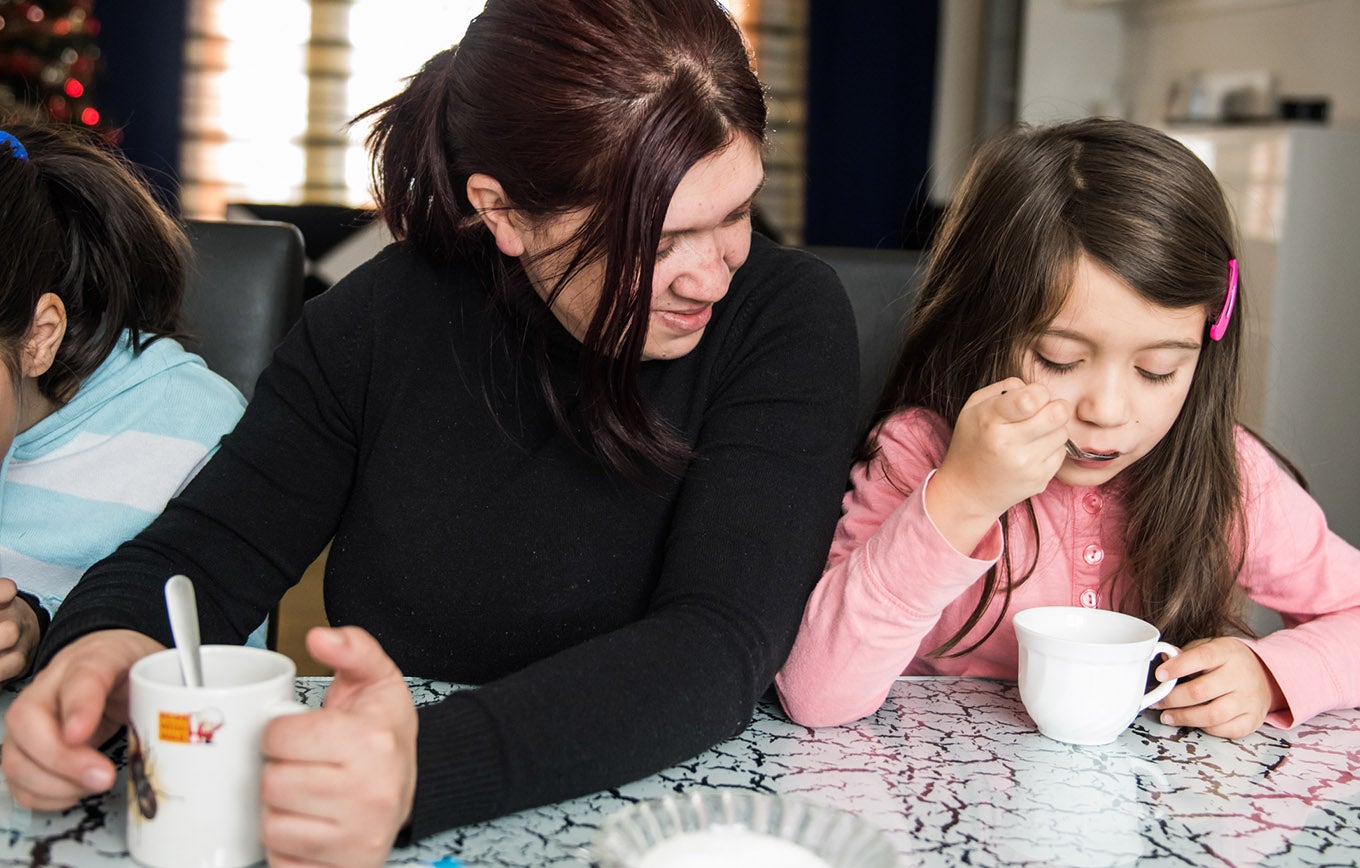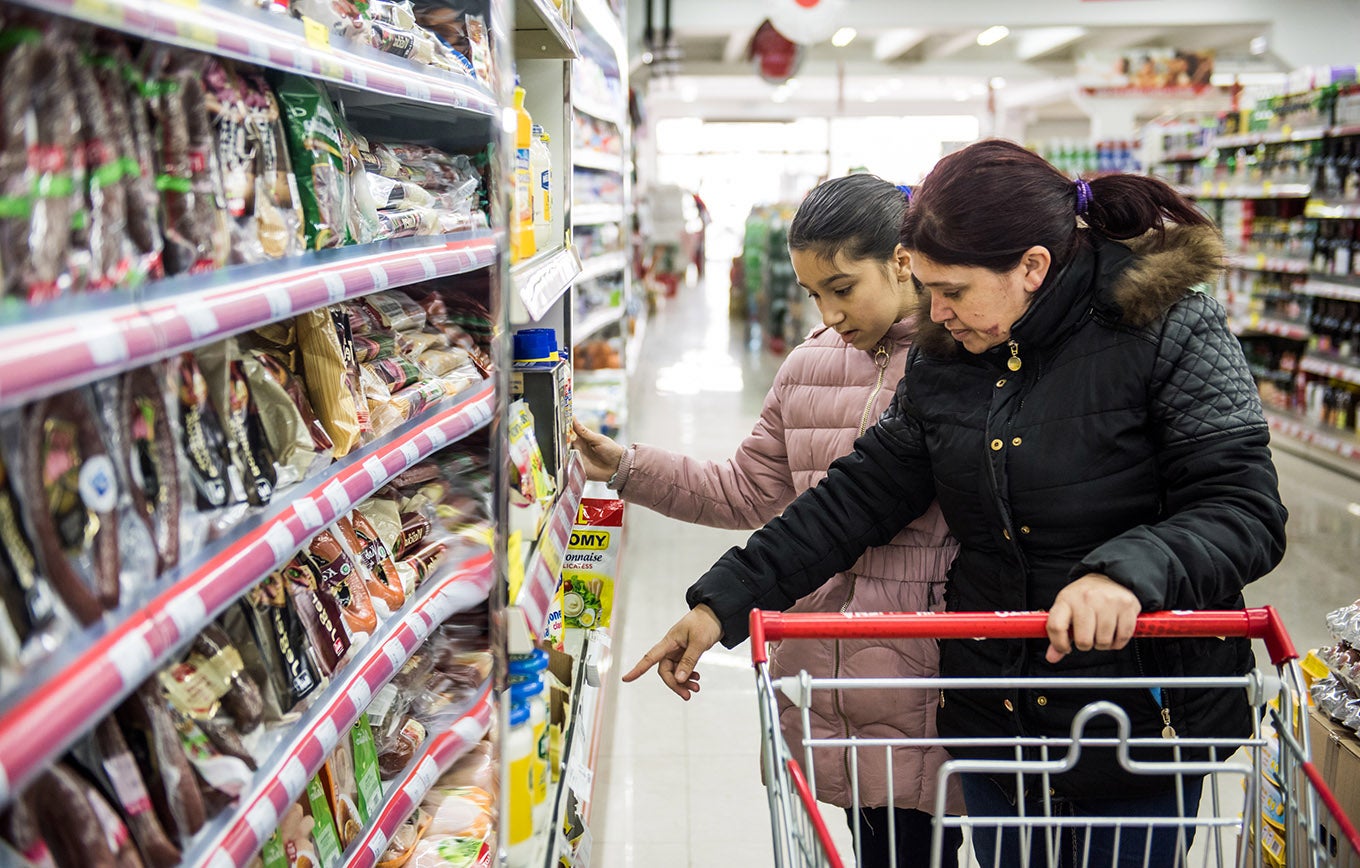MALO CAJNO, Bosnia and Herzegovina — Married at 15, Mediha Besic first became a mother at 16. Now 35, she has five children, ranging in age from 4 to 19. Part of a marginalized Roma community in a rural area of Bosnia and Herzegovina, she and her husband find themselves too poor to purchase modern contraception, relying instead on traditional, less effective options like withdrawal.
“It would have been easier to raise two kids,” Besic says. “I wanted to use contraception, but when you have no money, it is not affordable.”
Use of modern contraceptives in Bosnia and Herzegovina is extremely low: according to available data, just 21 per cent of all women of reproductive age, and 8 per cent of Roma women, use modern contraceptive methods. Few schools include comprehensive sexuality education in their curriculum, and 4 per cent of all girls in the country are married before their 18th birthday, a figure that is higher among Roma.
Figures like these point to the gaps in opportunities facing girls and women in Bosnia and Herzegovina, and around the world. Significant progress has been made in the 50 years since UNFPA was founded, and in the 25 years since world governments agreed to the Programme of Action adopted at the International Conference on Population and Development (ICPD) in Cairo. But not everyone has equal access to the same rights and choices, as UNFPA’s new State of World Population 2019 reveals.

Photo © Imrana Kapetanović/UNFPA Bosnia and Herzegovina
Like her mother before her, Besic works only at home. Her husband used to collect and sell leftover construction materials, but that business has diminished over the years, with supplies drying up and gas becoming more expensive. Now he finds work only occasionally as a day labourer. For the most part, the family survives on a publicly provided child allowance of about $50 per month, hardly above the global definition of extreme poverty.
Still, Besic feels that her life has improved in some ways since she was a child—and certainly since the war that consumed her country in the 1990s, when she remembers never having enough to eat. Today she lives in a larger home than the one she grew up in. It is constructed of brick and not scrap materials, although still has no running water.
Having finished primary school, she can read and write. By contrast, her mother never saw the inside of a classroom. Yet Besic is very far from a childhood ambition to be a teacher or doctor. “My parents had six children and could not pay for schooling for all of us, so I had to drop out.” A sister who did finish school went on to become a nurse.

Photo © Imrana Kapetanović/UNFPA Bosnia and Herzegovina
The first time Besic ever saw a gynaecologist was when she was five months pregnant with her first child. The doctors talked to her mostly about the baby and her delivery, but shared little information on planning future pregnancies. “In our culture, you don’t talk to anyone about family planning,” she says, remembering how she felt ashamed and shy.
UNFPA is working to address the unmet need for family planning in Bosnia and Herzegovina and to improve access to integrated sexual and reproductive health services for all people, including vulnerable groups such as Roma. To date, UNFPA has helped train a quarter of all family medicine physicians in Bosnia and Herzegovina in the clinical skills to do counselling on family planning. UNFPA also advocates for the implementation of comprehensive sexuality education in all schools in Bosnia and Herzegovina and works with UNICEF and local NGOs to raise awareness about the negative effects of child marriage.
Besic has made sure to talk to her oldest two children about how they can protect themselves. “I want them to finish school, find a job and then to get married and have their own families,” she says. “I feel optimistic that they will have better chances in life.”


